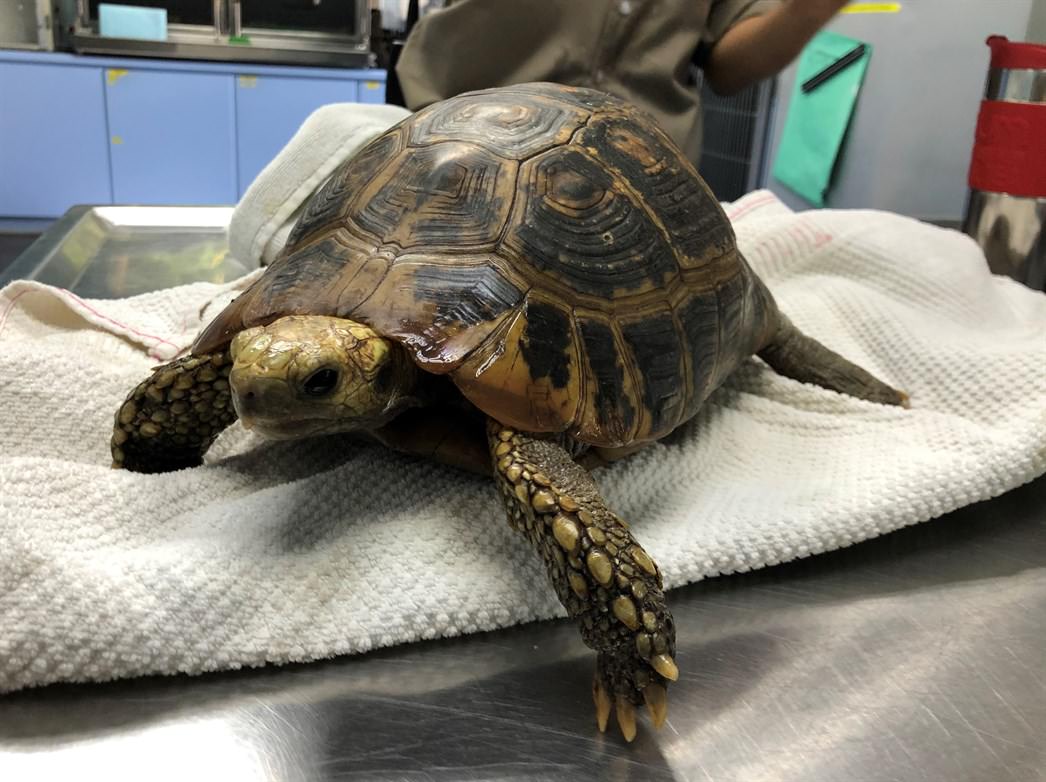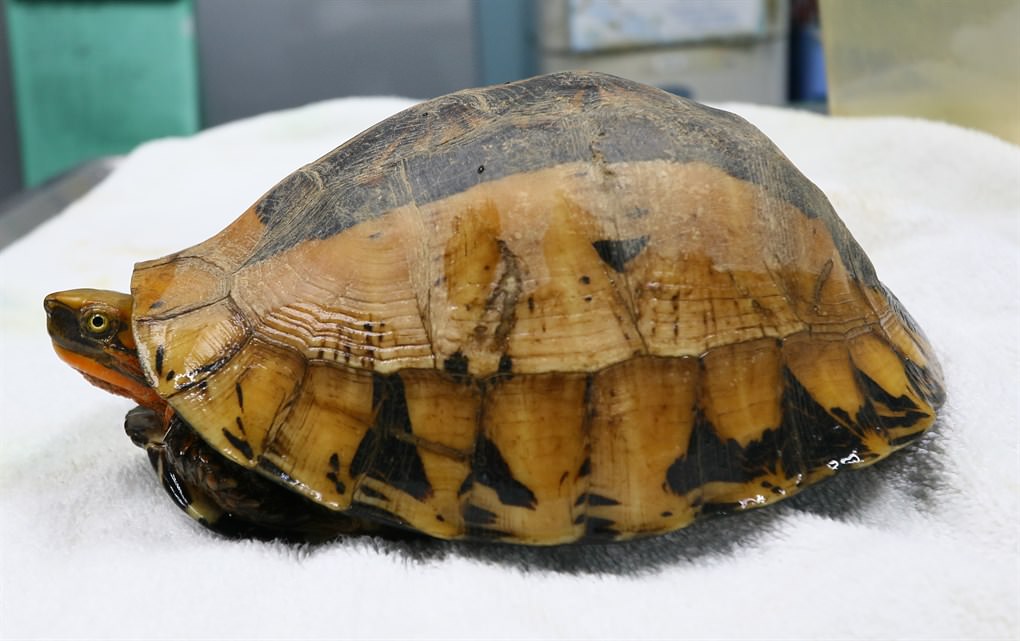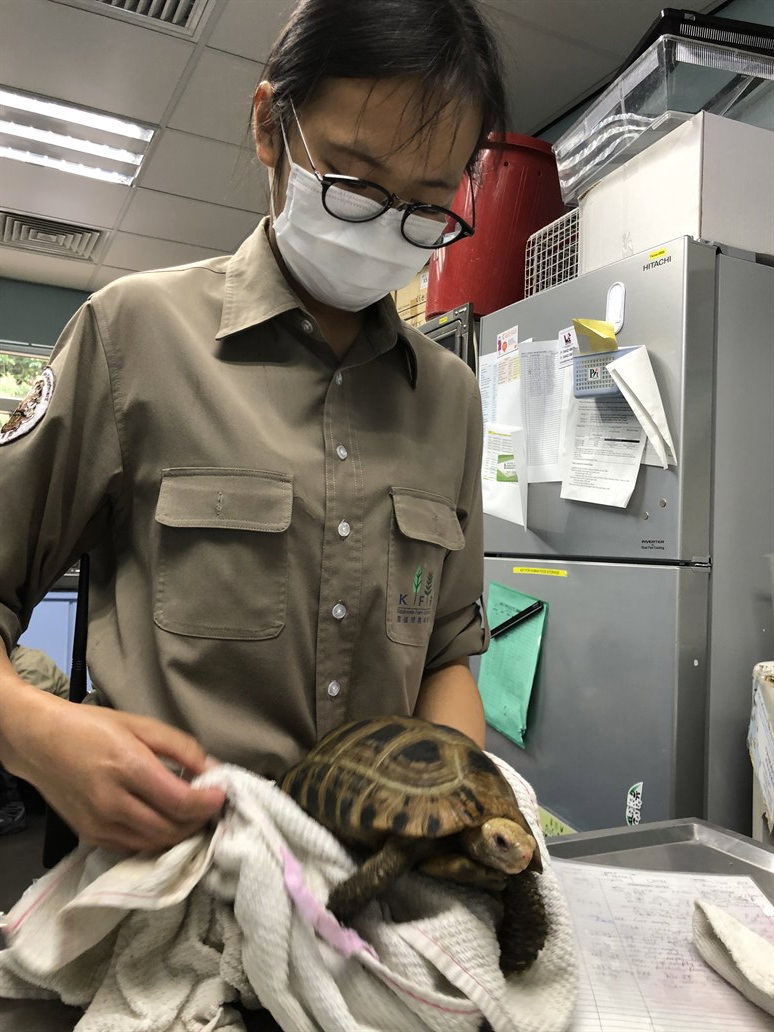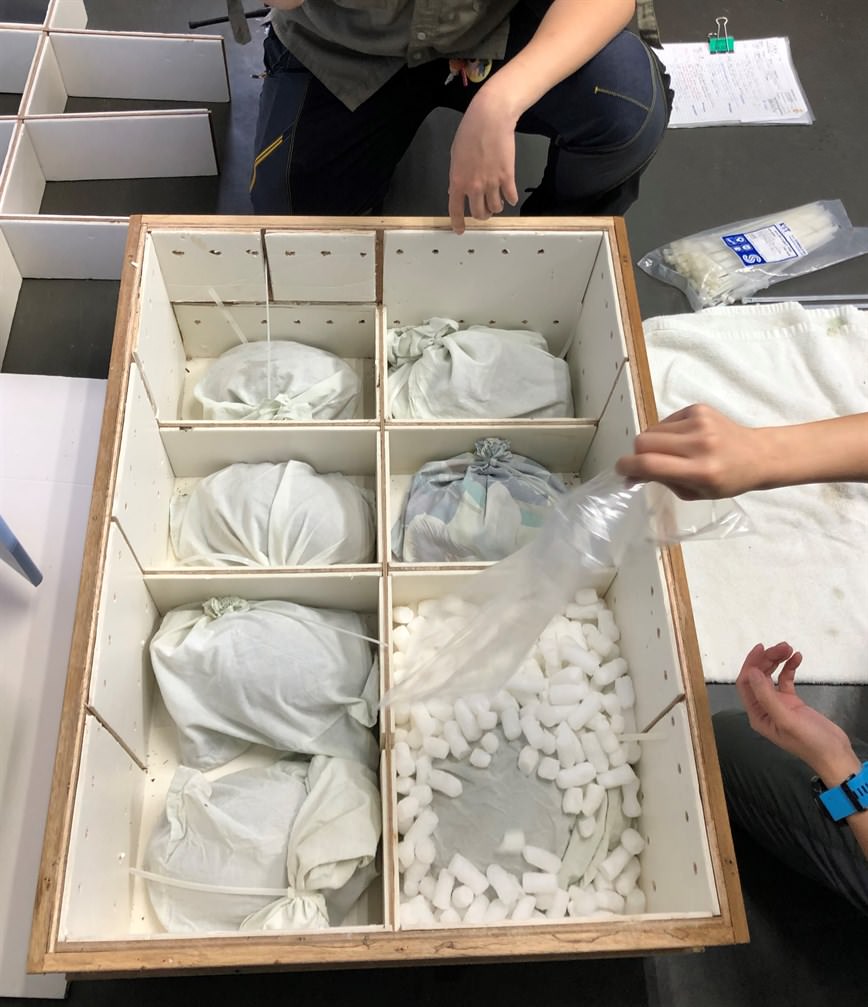Critically endangered turtles leave their temporary home at Kadoorie Farm
In February 2020, two groups of turtles originally seized from illegal trade were rehomed to join international conservation programmes. Thirteen critically endangered Elongated Tortoises (Indotestudo elongata) moved to Taiping Zoo in Malaysia, and three critically endangered Indochinese Box Turtles (Cuora galbinifrons) were sent to Wildlife Reserves Singapore. Both species have now entered into the conservation breeding and education programmes in the two zoological institutions. While this transfer to conservation is worth celebrating, we would prefer to have fewer of these wildlife trade outcomes to report, and hope there will be fewer threats to the species survival and these majestic chelonians can be left in the wild.

▲ Elongated Tortoise (Indotestudo elongata)

▲ Indochinese Box Turtle (Cuora galbinifrons)
Many reptiles residing at the Wild Animal Rescue Centre (WARC) of KFBG entered illegally into Hong Kong. The illegal imports were seized or confiscated by the Agriculture, Fisheries and Conservation Department (AFCD), and then transferred to our facility for health examination and temporary care. While being cared for, legal actions and investigations are undertaken by the authorities and the law courts. Sometimes the wild animals are repatriated to countries of origin, but many are rehomed to other conservation organisations as in this case.
Why not release the reptiles back to the wild?
For species that are native to Hong Kong, this would be an easier matter. However, the majority of the seized reptiles that we receive are smuggled exotic species from all over the world. Releasing them directly into the wild in Hong Kong is not possible. To complicate matters, some of these species are bred in captivity and legally sold in the pet trade. If the species is determined to be obtained illegally from the wild and the origin is known, we will attempt to send the animal back to its range country. However, there are many barriers that we must overcome – agreement between the governments of both HKSAR and the recipient country and if the animal is not endemic, proof that the individuals did indeed originate from the recipient country or at the very least, the species naturally occurs in the wild of the recipient country. Furthermore, to protect the wild populations from genetic pollution and introduction of exotic reptilian diseases that can be carried by the returning animals, a long and expensive process of quarantine and testing will need to be carried out. Returning to range countries, while a desirable outcome, is a rare occurrence.
To complete all necessary health checks, negotiations and logistic arrangements can be time consuming. Furthermore there are significant costs attached to holding and caring for turtles and tortoises prior to their rehoming. In the report published by KFBG’s Fauna Conservation Department in February 2017 - Live Animals in Illegal Trade: A review of selected holding and repatriation costs with enforcement outcomes for local confiscations, it was estimated that the cost of holding for 30 days (pre-export quarantine) and transporting one endangered Black Pond Turtle (Geoclemys hamiltonii) was HK$ 19,000 in 2016.

▲ Animal care staff carefully checking the physical condition and preparing an Elongated Tortoise for its journey to Taiping Zoo

▲ Elongated Tortoises wrapped in breathable cotton bags and cushioned by foam pellets in the animal transportation box
What you can do to help the fight against the illegal wildlife trade:
- Do not buy wildlife products
- Do not keep wild exotic pets. Wild animals belong in the wild
- Learn more about the wildlife trade and spread the conservation messages
- Support legislation to protect nature
- Report suspicious wild animal trading activities, to the AFCD at 1823.
- Consider volunteer work with KFBG or other wildlife conservation groups.
We are as dependent on healthy natural ecosystems as a turtle is dependent on its shell. Scientists are racing with time to study many turtle species before they go extinct, giving humans a better and more informed understanding of these animals, and increasing the chance to protect them. Let us take action now, share this article and take time to read one of the articles below.
Fong J and Sung Y (2017) Shells in Trouble—Turtle Ecology, Conservation, and the Asian Turtle Crisis. Front. Young Minds. 5:68. doi: 10.3389/frym.2017.00068
Maron, Dina Fine. 4,000 live reptiles rescued in biggest global raid of its kind, National Geographic, 5 June 2019, https://www.nationalgeographic.com/animals/2019/06/largest-reptile-raid-ever/
Oliver, T., Isaac, N., August, T. et al. Declining resilience of ecosystem functions under biodiversity loss. Nature Communications 6, 10122 (2015). https://doi.org/10.1038/ncomms10122
Licensing and Inspection Requirements (2018, Sep 6). Retrieved from: https://www.afcd.gov.hk/english/conservation/con_end/con_end_reg/con_end_reg_lic/con_end_reg_lic.html
Notes:
- Elongated Tortoises and Indochinese Box Turtles and protected by an international trade convention called CITES (Convention on the International Trade in Endangered Species).
- The IUCN (International Union for the Conservation of Nature) classifies the conservation status of animal and plant species.
- Endangered status (EN) – the species may become extinct in 20 years if threats to the species survival remains.
- Critically Endangered status (CR) – the species may become extinct in 10 years if threats to the species survival remains.


